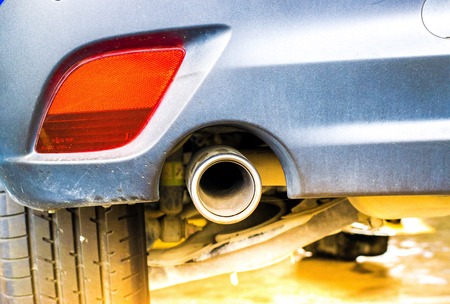Understanding the Importance of Your Exhaust System
Your car’s exhaust system is far more than a simple pipe expelling fumes; it’s a critical component for ensuring your vehicle runs efficiently, quietly, and in compliance with UK environmental standards. At its core, the exhaust system channels harmful gases away from the engine and passenger cabin, but it also plays a pivotal role in optimising performance and fuel economy. In the UK, where MOT requirements and Clean Air Zones are becoming increasingly stringent, a well-maintained exhaust is essential for passing annual inspections and avoiding fines. Additionally, modern exhaust systems are engineered to reduce noise pollution—an important consideration on Britain’s densely populated roads—and to ensure emissions remain within legal limits set by UK and EU regulations. From reducing your carbon footprint to safeguarding your health and wallet, understanding the function and importance of your car’s exhaust system is the first step towards responsible motoring on British roads.
2. Common Exhaust Problems in UK Conditions
When it comes to maintaining your car’s exhaust system in the UK, it’s crucial to recognise the unique challenges posed by British weather, road treatments, and driving habits. The UK’s notorious combination of rain, cold temperatures, and liberal use of road salt creates a perfect storm for exhaust system deterioration, especially when paired with frequent city driving and short journeys.
Typical Issues Caused by British Weather & Road Salt
The damp and often chilly climate across the UK leads to rapid rust formation on exposed metal components. Rainwater and condensation can collect on the exhaust pipes and silencer, accelerating corrosion. In winter, councils spread large amounts of rock salt on roads to prevent ice, but this salt is highly corrosive to metalwork underneath your car—including your exhaust system.
| Problem | Main Cause | How It Affects Your Car |
|---|---|---|
| Rust and Corrosion | Wet weather, road salt | Weakened pipes, risk of leaks or breakages |
| Exhaust Leaks | Potholes, speed bumps | Louder engine noise, reduced efficiency, potential MOT failure |
| Deteriorated Mountings & Hangers | Bumpy roads, city traffic | Rattling noises, misaligned exhaust parts |
| Blocked Catalytic Converter | Short trips, stop-start traffic | Poor fuel economy, failed emissions tests |
City Driving: Stop-Start Impact on Exhaust Health
Bumper-to-bumper traffic and frequent short trips—commonplace in cities like London or Manchester—don’t allow your exhaust system to fully heat up. This means moisture doesn’t evaporate properly from inside the pipes, leading to internal corrosion over time. Short runs also increase soot build-up within the catalytic converter and diesel particulate filter (DPF), particularly in modern diesel vehicles.
Key Signs Your Exhaust Needs Attention
- Loud Noises: Unusual roaring or hissing sounds could mean a hole or crack has developed.
- Visible Rust or Holes: Check for brown patches or holes along the exhaust pipe and silencer.
- Poor Fuel Economy: If you’re filling up more often without a clear reason, your exhaust may not be functioning efficiently.
- Vibrations: Noticeable vibrations through the steering wheel or floor may indicate loose mountings or hangers.
- Failed Emissions Test: An MOT fail related to emissions is often down to an underperforming catalytic converter or leaks in the system.
Pro Tip:
If you spot any of these warning signs—or if you notice a drop in performance—it’s best to have your exhaust inspected by a trusted garage sooner rather than later. Early intervention can save you money on costly repairs further down the line.

3. Routine Inspection and Maintenance Tips
Keeping your car’s exhaust system in top condition is not just about longevity – it’s also essential for passing the UK’s strict MOT test and ensuring safe, efficient driving whether you’re navigating city streets or cruising down the M1. Here’s how to keep your exhaust system performing at its best, with advice tailored to British roads and regulations.
Understanding MOT Requirements
The annual MOT test is a legal requirement for most vehicles over three years old in the UK. During this check, inspectors will scrutinise your exhaust for leaks, excessive noise, corrosion, and secure mounting. Failing on exhaust issues is common, so regular DIY inspections can save you both hassle and money come test time.
How Often Should You Inspect?
For most motorists, a thorough inspection every three to six months is recommended. However, if you frequently drive on salted winter roads, tackle short city journeys (which promote condensation), or rack up high motorway mileage, monthly checks are wise. Always inspect before long trips and after rough weather or roadworks.
What to Look For
- Rust and Corrosion: Pay close attention to joints, hangers, and silencer boxes – common weak spots especially vulnerable to salt and moisture.
- Unusual Noises: Listen out for rattling, hissing, or loud roaring which could indicate holes or loose fittings.
- Visible Damage: Check for dents, cracks or sagging pipes after pothole impacts or kerb strikes.
Practical Tips for Different Driving Conditions
- Urban Drivers: Short journeys mean the exhaust rarely gets hot enough to evaporate moisture, increasing rust risk. Consider taking your car for a longer run weekly to clear condensation.
- Motorway Commuters: High-speed runs help burn off moisture but can stress mounts and joints. Regularly check for loose brackets or missing bolts after extended drives.
Navigating UK Weather
The British climate is notoriously damp, which accelerates corrosion. Where possible, park in a garage or under cover during wet months and wash the underside of your car regularly in winter to remove salt residue from gritted roads.
A proactive approach keeps repair costs down and ensures you stay road-legal year-round – an absolute must for every UK motorist.
4. When Should You Repair or Replace Your Exhaust?
Knowing when to repair or replace your car’s exhaust system is crucial for both safety and cost efficiency, especially under UK driving conditions and MOT requirements. Here’s how you can decide whether a quick fix will suffice or if it’s time to invest in a full replacement.
Signs That You Can Opt for a Repair
- Minor Leaks: Small holes or cracks, often due to rust, can sometimes be patched by garages using specialist kits.
- Loose Components: Brackets and hangers that have come loose but aren’t damaged beyond repair can typically be re-secured.
- Isolated Damage: If only one section of the exhaust (like the tailpipe) is affected, repairing or replacing just that part is often possible.
When Replacement Is Necessary
- Severe Corrosion: Extensive rust weakens the structure, making patching ineffective or unsafe.
- Loud Noises: A persistent loud roar or rattling after attempted repairs usually signals deeper issues, requiring new parts.
- MOT Failure: If your vehicle fails its MOT due to exhaust emissions or excessive noise, a replacement might be unavoidable.
UK Garage Standards and Part Availability
Most UK garages adhere to strict safety standards set by the DVSA. They will recommend replacement over repair if there’s any doubt about roadworthiness. Additionally, the availability of parts—especially for older models—can influence whether repair is viable. Local garages often source common parts quickly, but rare components may require full-section replacements.
Quick Comparison: Repair vs Replacement
| Criteria | Repair | Replacement |
|---|---|---|
| Cost | Lower (usually £50–£150) | Higher (£200–£600+ depending on make/model) |
| Time Off Road | Few hours | A day or more (if parts need ordering) |
| MOT Pass Likelihood | If minor issue only | Certain if done professionally |
If you’re ever unsure, consult with your local trusted garage. They’ll assess according to UK standards and guide you towards the safest and most economical option based on current part availability and your vehicle’s condition.
5. Choosing the Right Mechanic or Garage in the UK
When it comes to maintaining your car’s exhaust system, selecting a reputable mechanic or garage is crucial for both your safety and compliance with UK regulations. Here are essential tips to guide you through the process.
Finding Reputable Local Garages
Start by seeking recommendations from friends, family, or colleagues who have had similar work done. Online reviews on platforms such as Trustpilot and Google can also offer insight into a garage’s reputation. Look for garages displaying memberships with professional bodies like the Institute of the Motor Industry (IMI) or those that are part of the Good Garage Scheme—these affiliations indicate a commitment to industry standards and ongoing training.
Understanding Quotes and What’s Included
Always request a detailed written quote before any work begins. This should break down labour costs, parts, VAT, and any additional fees. A trustworthy garage will be transparent about pricing and happy to explain each item on your quote. Be wary of lowball estimates that seem too good to be true; these often exclude essential elements or use inferior aftermarket parts that may not meet UK safety standards.
Ensuring Compliance with UK Safety and Environmental Regulations
Your chosen garage must understand and adhere to UK MOT standards and environmental requirements for exhaust systems. Ask if replacement parts are type-approved for use in the UK, especially catalytic converters and DPFs (Diesel Particulate Filters). After completion, ensure you receive paperwork showing compliance—including receipts for parts fitted and confirmation that emissions levels meet current legal limits.
Key Takeaway
By choosing an established local garage with transparent quoting practices and a solid understanding of UK regulations, you’ll protect both your investment and the environment while ensuring your car remains road-legal.
6. Cost Considerations and Warranties
When it comes to maintaining your car’s exhaust system in the UK, understanding the costs involved and what warranties are available is crucial for effective budgeting. Exhaust repairs and replacements can vary significantly in price depending on the make and model of your vehicle, as well as whether you’re opting for original manufacturer parts or quality aftermarket alternatives.
Common Price Ranges in the UK
For most vehicles, replacing a standard exhaust section such as a back box or mid-section typically falls within the £100–£250 range at independent garages. Full exhaust systems, including catalytic converters or diesel particulate filters (DPFs), can range from £300 up to £1,000 or more for premium models or complex systems. Labour costs across the UK average between £50–£90 per hour, so always factor this into your estimates. London and the South East often command higher rates compared to other regions.
Factors Affecting Costs
- Vehicle Type: Sports cars, luxury brands, or imports often require more expensive parts and specialist labour.
- Materials Used: Stainless steel systems cost more upfront but offer increased longevity over mild steel.
- Extent of Work Needed: Replacing only a silencer is less expensive than fitting an entirely new system.
Typical Warranty Lengths
Reputable UK garages usually provide a warranty on both parts and labour for exhaust work. Most aftermarket exhaust parts come with a 1- to 2-year warranty as standard, while some stainless steel systems may carry warranties lasting up to 5 years or even lifetime coverage, especially if fitted by specialists. Always confirm whether your quote includes a warranty and check what is covered—some policies exclude corrosion caused by road salt or physical damage from impacts.
Main Warranty Points to Check
- Coverage Period: How many miles or years does the warranty last?
- Labour Included: Will future repairs under warranty include fitting costs?
- Transferability: Can the warranty be transferred if you sell your car?
Budgeting for Exhaust Work
If you want to keep running costs predictable, set aside funds annually for routine inspections and minor repairs—around £50–£100 should suffice for most vehicles. For older cars or those covering high mileages, consider increasing this budget to account for possible component replacements. Staying proactive with maintenance not only reduces unexpected outlays but also helps maintain fuel efficiency and keeps your car compliant with MOT emissions requirements.
The Bottom Line
Proper planning around costs and warranties can save you hassle down the line. Shop around for quotes, ask about part quality, and don’t hesitate to request details on included guarantees—these steps will help ensure you get value for money when maintaining your car’s exhaust system in the UK.


